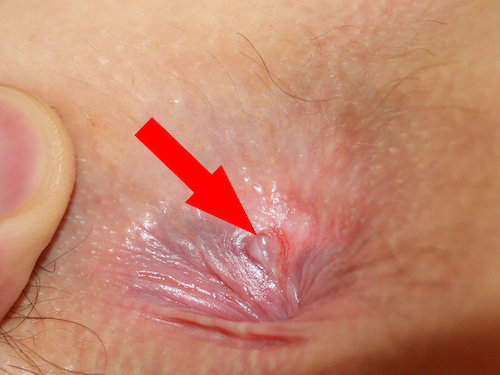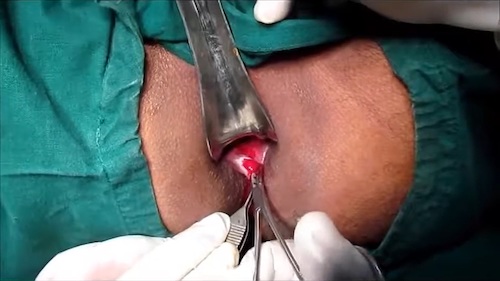Anorectal: Anal Fissure
Anal Fissure
Basics
- Tear in Anoderm from Straining
- Sentinel Pile – Thickened Mucosal Papilla at the Distal End of Chronic Fissures
Location
- Posterior Midline – Most Common (90%)
- Where the Greatest Mechanical Stress is Placed
- Anterior Midline – More Common in Females (Posterior Still More Common Overall)
- Lateral Sites – Prompt Concern for Other Pathology
Symptoms
- Pain – Worse with Defecation
- Bleeding
Atypical Features
- Atypical Features Raise Concern for Other Pathology (IBD, Cancer, HIV or HPV)
- Atypical Features:
- Lateral Site
- Multiple Sites
- Nonhealing
- Recurrence
- Painless Fissures
Treatment
- Initial: Conservative Management
- Sitz Baths – A Bath with Shallow Warm Water in Which Only the Buttock/Hips are Emerged & Soaked
- Adequate Hydration
- Fiber Supplements
- Daily Goal: 20-25 g for Women, 25-30 g for Men
- Stool Softeners
- If Conservative Management Fails: Topical Creams
- Calcium Channel Blockers (Diltiazem/Nifedipine)
- Nitroglycerin
- Lidocaine
- If Topical Creams Fail: Botulinum Toxin Injection
- The Most Effective Medical Treatment
- Surgical Sphincterotomy is Contraindicated If Patient Develops Fecal Incontinence After Botox Injection
- If Medical Management Fails: Lateral Internal Anal Sphincterotomy
- *See Anorectal: Lateral Internal Anal Sphincterotomy
- The Most Effective Treatment
- Success: 88-100%
- Highest Risk for Fecal Incontinence
- Avoid Surgical Management in Patients with Crohn’s Unless Absolutely Necessary

Anal Fissure 1

Lateral Internal Anal Sphincterotomy 2
References
- Gui B. Wikimedia Commons. (License: Public Domain)
- Surgery E Learning. Wikimedia Commons. (License: CC BY-3.0)